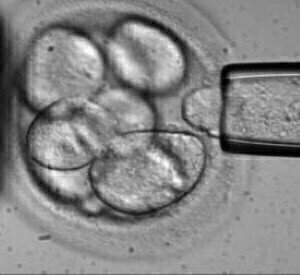-
 Spanish scientists succeed in organ creation
Spanish scientists succeed in organ creation
News & Views
Spanish scientists produce bioartificial organ
Apr 14 2011
Marking the first time this has been achieved in the country, the researchers implanted human stem cells after extracting pig corneal cells.
Based at the University of Granada, the team of six scientists used decellularisation and recellulation to complete the process.
In doing so, they were able to switch the cells while keeping the fundamental corneal structure in place.
Previously, this research group forged an artificial cornea, which is currently being prepared to commence clinical trials.
This tissue was made from biomaterials and developed at the University of Granada's Tissue Engineering Laboratory.
Recently, scientists in Wales have made another kind of headway with tissue in Wales.
Speaking at the Society for General Microbiology's Spring Conference, Professor Rose Cooper from the University of Wales Institute in Cardiff revealed that manuka honey can help to treat infected wounds that are resisting antibiotics.
Digital Edition
Lab Asia 31.2 April 2024
April 2024
In This Edition Chromatography Articles - Approaches to troubleshooting an SPE method for the analysis of oligonucleotides (pt i) - High-precision liquid flow processes demand full fluidic c...
View all digital editions
Events
Apr 22 2024 Marrakech, Morroco
Making Pharmaceuticals Exhibition & Conference
Apr 23 2024 Coventry, UK
Apr 23 2024 Kintex, South Korea
Apr 23 2024 Seoul, South Korea
Apr 24 2024 Jakarta, Indonesia







.jpg)









